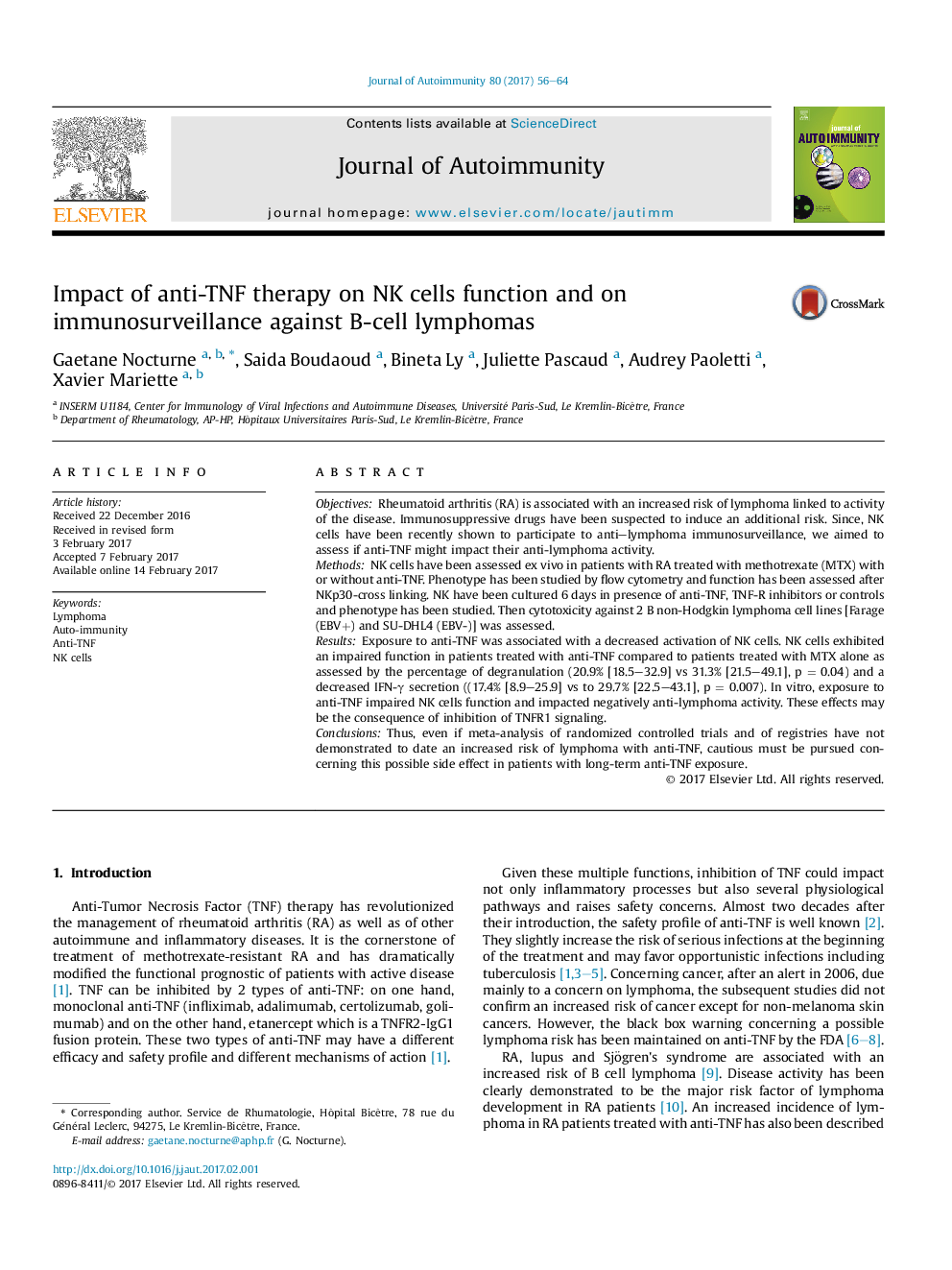| کد مقاله | کد نشریه | سال انتشار | مقاله انگلیسی | نسخه تمام متن |
|---|---|---|---|---|
| 5667830 | 1592269 | 2017 | 9 صفحه PDF | دانلود رایگان |

- Natural killer cells exposed in vivo or in vitro to anti-TNF are less activated.
- Natural killer cells exposed to anti-TNF are less functional in term of degranulation and cytokine production.
- Natural killer cells exposed to anti-TNF are less potent to lyse B cell lymphoma cell lines.
- Negative impact of anti TNF on NK cells function is the consequence of the inhibition of TNFR1 signalling.
ObjectivesRheumatoid arthritis (RA) is associated with an increased risk of lymphoma linked to activity of the disease. Immunosuppressive drugs have been suspected to induce an additional risk. Since, NK cells have been recently shown to participate to anti-lymphoma immunosurveillance, we aimed to assess if anti-TNF might impact their anti-lymphoma activity.MethodsNK cells have been assessed ex vivo in patients with RA treated with methotrexate (MTX) with or without anti-TNF. Phenotype has been studied by flow cytometry and function has been assessed after NKp30-cross linking. NK have been cultured 6 days in presence of anti-TNF, TNF-R inhibitors or controls and phenotype has been studied. Then cytotoxicity against 2 B non-Hodgkin lymphoma cell lines [Farage (EBV+) and SU-DHL4 (EBV-)] was assessed.ResultsExposure to anti-TNF was associated with a decreased activation of NK cells. NK cells exhibited an impaired function in patients treated with anti-TNF compared to patients treated with MTX alone as assessed by the percentage of degranulation (20.9% [18.5-32.9] vs 31.3% [21.5-49.1], p = 0.04) and a decreased IFN-γ secretion ((17.4% [8.9-25.9] vs to 29.7% [22.5-43.1], p = 0.007). In vitro, exposure to anti-TNF impaired NK cells function and impacted negatively anti-lymphoma activity. These effects may be the consequence of inhibition of TNFR1 signaling.ConclusionsThus, even if meta-analysis of randomized controlled trials and of registries have not demonstrated to date an increased risk of lymphoma with anti-TNF, cautious must be pursued concerning this possible side effect in patients with long-term anti-TNF exposure.
Journal: Journal of Autoimmunity - Volume 80, June 2017, Pages 56-64